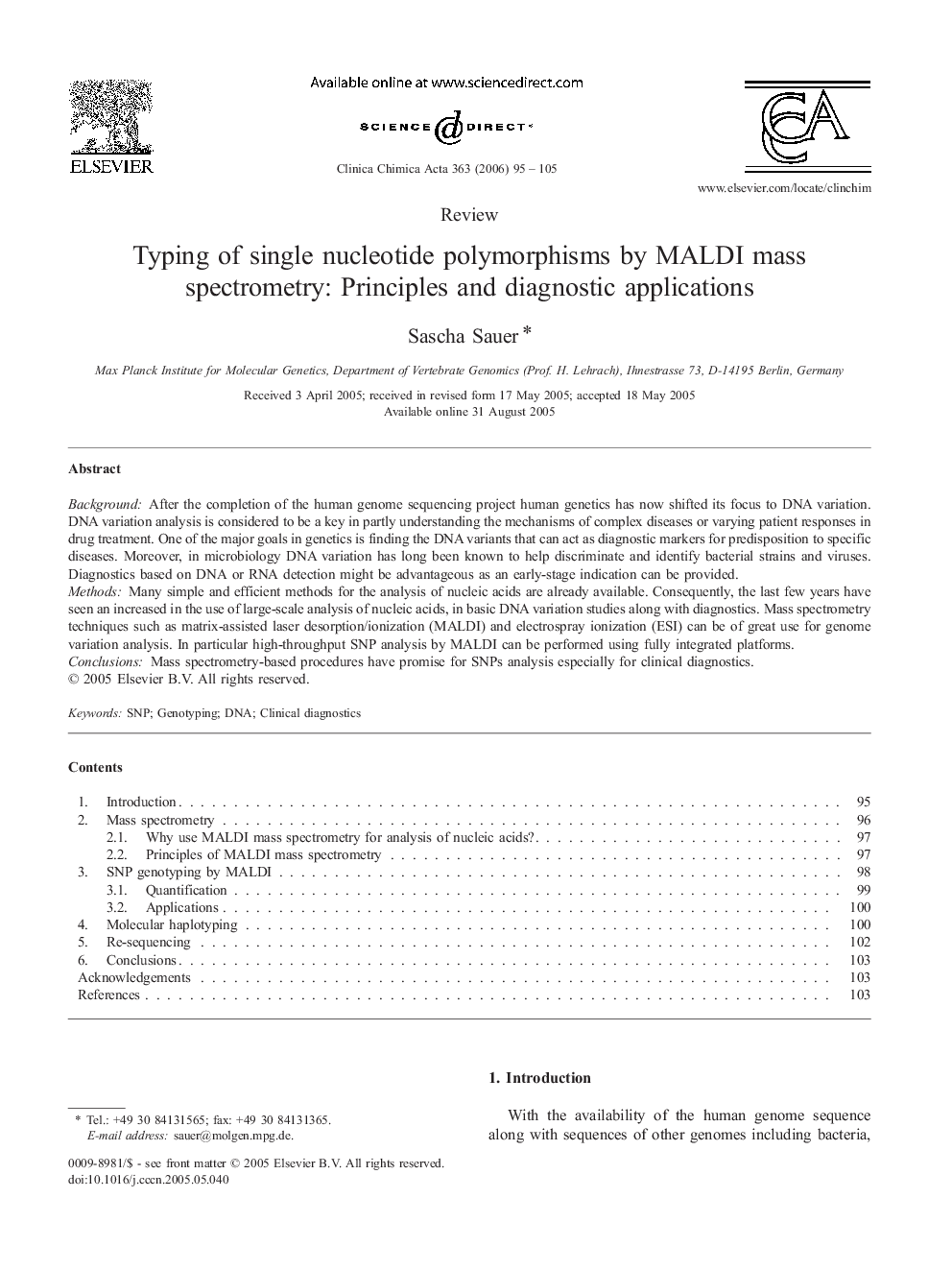| Article ID | Journal | Published Year | Pages | File Type |
|---|---|---|---|---|
| 1968296 | Clinica Chimica Acta | 2006 | 11 Pages |
BackgroundAfter the completion of the human genome sequencing project human genetics has now shifted its focus to DNA variation. DNA variation analysis is considered to be a key in partly understanding the mechanisms of complex diseases or varying patient responses in drug treatment. One of the major goals in genetics is finding the DNA variants that can act as diagnostic markers for predisposition to specific diseases. Moreover, in microbiology DNA variation has long been known to help discriminate and identify bacterial strains and viruses. Diagnostics based on DNA or RNA detection might be advantageous as an early-stage indication can be provided.MethodsMany simple and efficient methods for the analysis of nucleic acids are already available. Consequently, the last few years have seen an increased in the use of large-scale analysis of nucleic acids, in basic DNA variation studies along with diagnostics. Mass spectrometry techniques such as matrix-assisted laser desorption/ionization (MALDI) and electrospray ionization (ESI) can be of great use for genome variation analysis. In particular high-throughput SNP analysis by MALDI can be performed using fully integrated platforms.ConclusionsMass spectrometry-based procedures have promise for SNPs analysis especially for clinical diagnostics.
